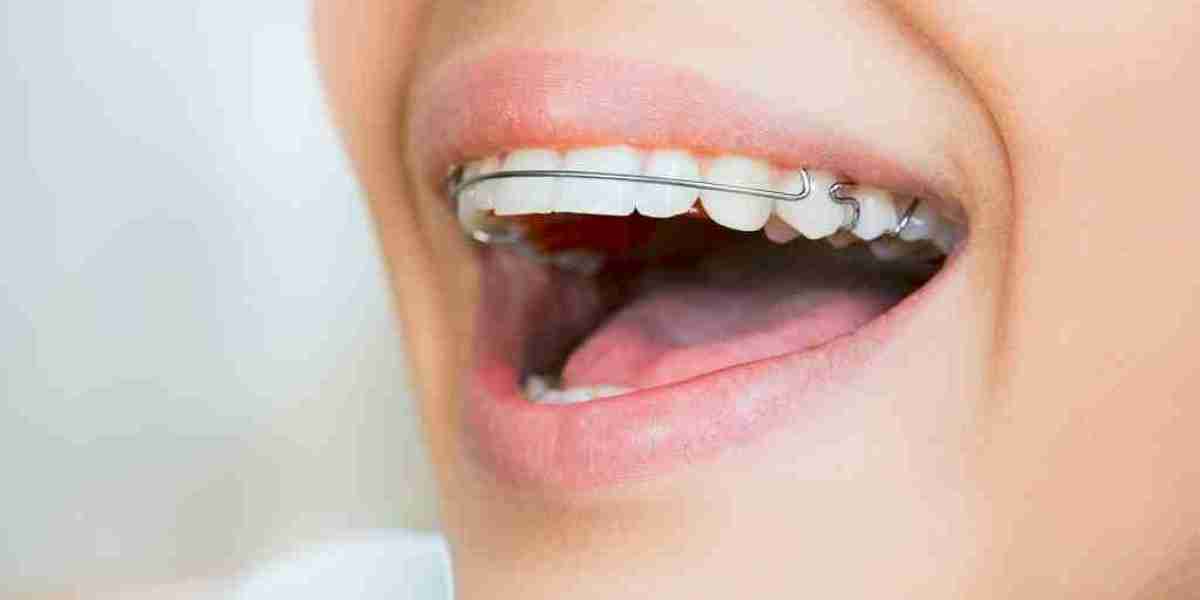After months or even years of orthodontic treatment, many patients ask, why do orthodontists recommend wearing a retainer? The answer is simple but critical—retainers help preserve the hard-earned results of braces or aligners by preventing your teeth from shifting back to their original positions. Without proper Dental Retainers use, all the time, effort, and money spent on orthodontic care can quickly be undone.
The Role of Retainers After Orthodontic Treatment:
Orthodontic treatment moves your teeth into better positions, but the process also affects the bones and tissues around your teeth. Once the active phase of treatment ends, your teeth still need time to stabilize in their new locations.
Retainers hold teeth in place as bones and ligaments adjust
They prevent relapse or the tendency for teeth to return to their original misalignment
Help maintain jaw alignment and ensure a proper bite
Support overall oral health by keeping teeth easy to clean and maintain
Without a retainer, teeth are very likely to shift, especially in the first year after treatment.
Types of Retainers and Their Benefits:
When discussing why do orthodontists recommend wearing a retainer, it’s important to understand the different types of retainers and how each benefits your dental health.
Fixed (permanent) retainers are bonded behind the teeth and offer continuous protection without daily removal
Removable Hawley retainers use metal wires and acrylic for durability and minor adjustability
Clear plastic retainers like Essix are nearly invisible and easy to wear discreetly
Specialized retainers can also address minor shifting if it occurs
Each type of retainer is selected based on your specific needs and lifestyle to ensure long-term success.
What Happens If You Don’t Wear Your Retainer?
Skipping your retainer even occasionally can have serious consequences for your smile. Teeth naturally want to move back to their original positions, a phenomenon called relapse.
Shifting of teeth within a few weeks or months
Loss of your ideal bite leading to jaw discomfort or uneven wear
Possible gaps reopening between teeth
Higher risk of needing retreatment like braces or aligners again
Maintaining consistent retainer wear is the simplest way to protect your beautiful, straight smile.
How Long Do You Need to Wear a Retainer?
Another common question after why do orthodontists recommend wearing a retainer is, “For how long?” The truth is, retainer wear is usually a lifelong commitment, but the schedule may change over time.
Full-time wear (20–22 hours/day) for the first few months post-treatment
Nighttime wear only after initial stabilization
Lifelong nighttime wear to prevent natural shifting as you age
Occasional adjustments or new retainers may be needed over time
Consistency is key—even if you feel like your teeth are stable, underlying changes can still occur without proper support.
Tips for Making Retainer Wear Easier:
Wearing a Best Dental Retainers every night might feel like a chore at first, but with a few helpful habits, it can become second nature.
Keep your retainer near your bed so it’s easy to remember
Clean it daily to avoid buildup and odors
Store it in its case when not in use to prevent loss or damage
Replace your retainer if it becomes cracked, loose, or uncomfortable
Making retainer care part of your daily routine ensures better results and fewer dental problems down the line.
Final Thoughts:
Ultimately, why do orthodontists recommend wearing a retainer? Because maintaining your smile is just as important as creating it. Retainers lock in the hard work of braces or aligners and protect you from costly or frustrating orthodontic relapse.
They maintain your perfect alignment long-term
They protect your bite and overall oral function
They preserve your investment in time, money, and effort
They provide lifelong benefits for both appearance and dental health
By wearing your retainer as prescribed, you can enjoy a confident, healthy smile for a lifetime.




